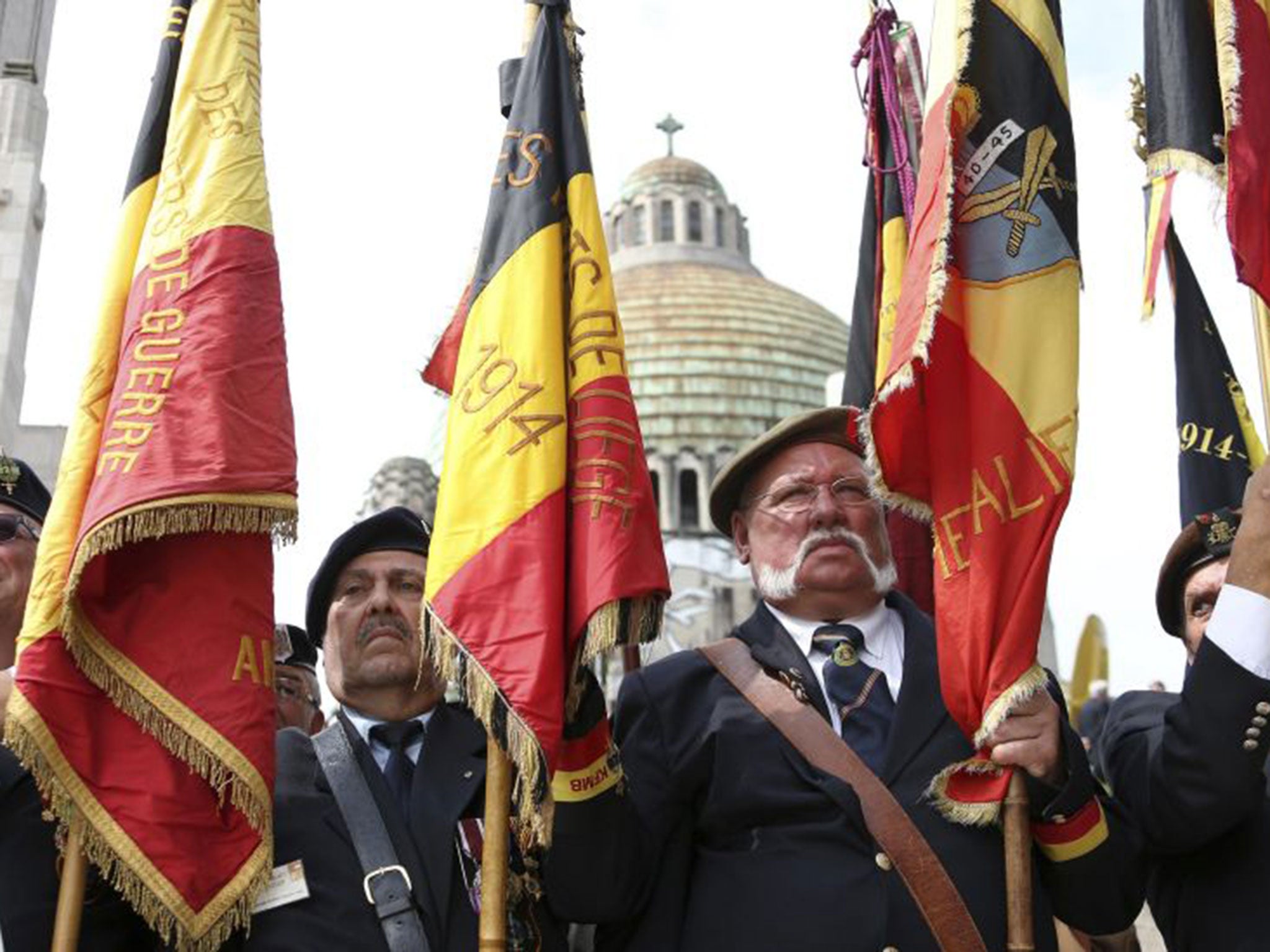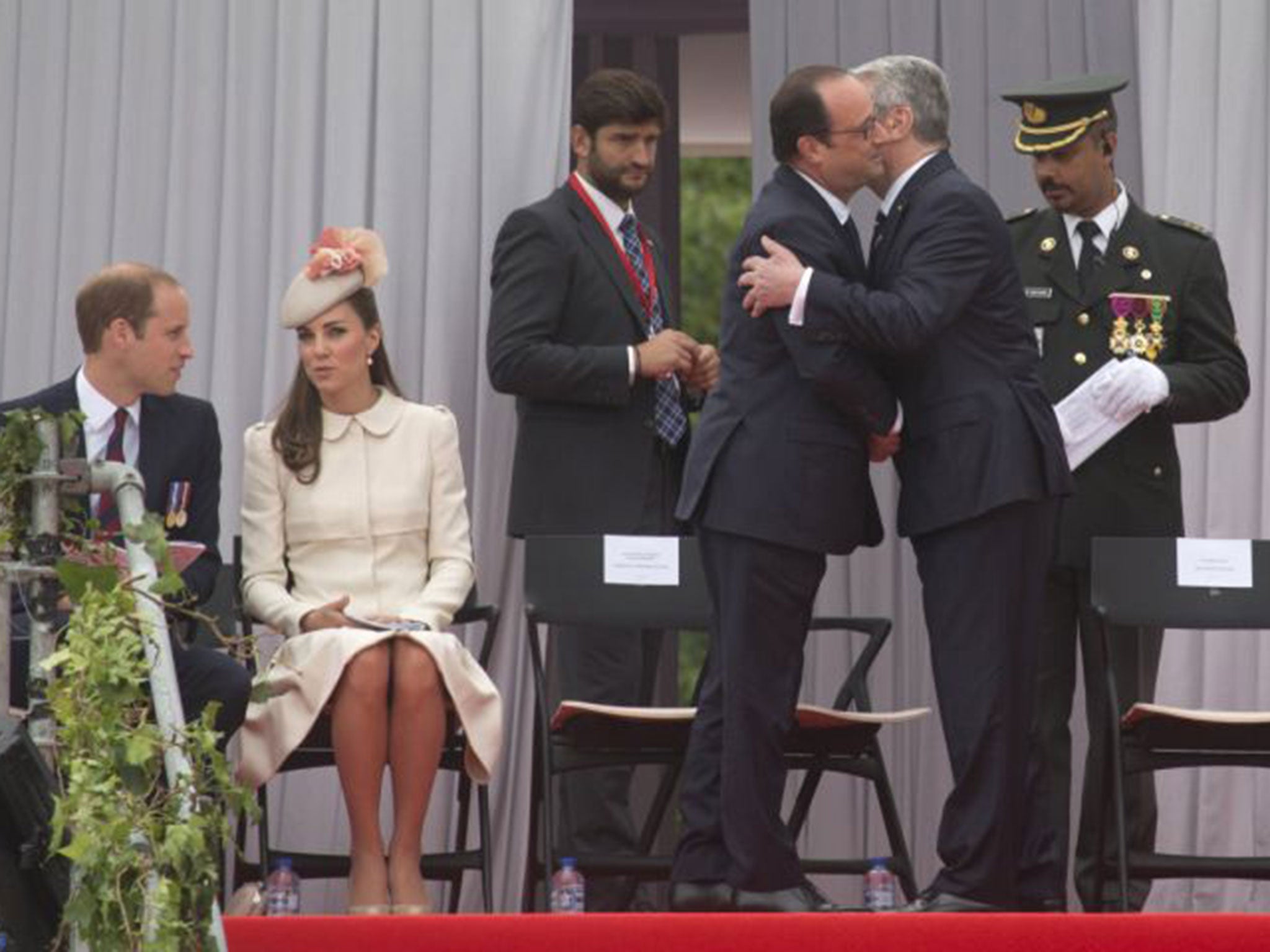On a peaceful evening, nations once at war stood in harmony

Your support helps us to tell the story
From reproductive rights to climate change to Big Tech, The Independent is on the ground when the story is developing. Whether it's investigating the financials of Elon Musk's pro-Trump PAC or producing our latest documentary, 'The A Word', which shines a light on the American women fighting for reproductive rights, we know how important it is to parse out the facts from the messaging.
At such a critical moment in US history, we need reporters on the ground. Your donation allows us to keep sending journalists to speak to both sides of the story.
The Independent is trusted by Americans across the entire political spectrum. And unlike many other quality news outlets, we choose not to lock Americans out of our reporting and analysis with paywalls. We believe quality journalism should be available to everyone, paid for by those who can afford it.
Your support makes all the difference.A calm evening light settled over Saint Symphorien cemetery in Mons yesterday as dignitaries, soldiers and families of the fallen gathered to mark the day the world plunged into darkness. Before them lay the graves of the war dead, British and German casualties side-by-side, as delegates from those once-warring nations stood together to remember the catastrophic events of 100 years ago.
Serving German and British soldiers took turns to read letters, poems and prose from the front line, a reminder of the unimaginable human suffering set in motion on 4 August 1914. The first German soldiers crossed into Belgium, triggering Britain’s declaration of war and a four-year conflict that would shape the world we live in today.
As the shells fall on Gaza, millions of Syrians flee war crimes, and the events in Ukraine shake a long-standing belief in the sanctity of Europe’s borders, the message yesterday was one of reconciliation: no matter how deep the animosities, how cruel the conflict, how many dead, nations can overcome.
“We should never fail to cherish the peace between these nations, and never underestimate the patient work it has taken to build that peace,” David Cameron told the gathered guests, after music from British and German choirs rang out across the carefully tended graveyard. “So 100 years on, it is right that collectively we stop, we pause, and we re-pledge this for the next 100 years: we will never forget, we will always remember them.”
The German President, Joachim Gauck, shared similar sentiments earlier in the day at Liège, where a ceremony launched the centenary events. “We are grateful to have been able to live together in peace for so long here in Europe,” he said. “We know that this is not something to be taken for granted.”
The heads of state and other dignitaries from 50 nations had gathered at Liège’s Allied Memorial, a few dozen miles from the border where the first German troops crossed. The invasion ended a 37-day tumble into carnage which began with a fatal bullet in Sarajevo on 28 June. The assassination of Austria-Hungary’s Archduke Franz Ferdinand put the empire and its ally Germany on a spiralling collision course, first with Serbia and Russia, then Britain and France.
Frantic diplomacy failed to stop the wave of nationalism and paranoia, and on 3 August 1914, Germany declared war on France, hoping to storm through Belgium and reach Paris within weeks. Belgium refused safe passage, triggering a British pledge to protect the small nation’s neutrality: by 11pm a day later, Germany and Britain were at war.
The swift advance on Paris never came, and Liège became the first battlefield of the first global conflict, which would eventually draw in 65 million combatants from 72 nations, with millions of them never making it home alive.

On a forested hilltop above Liège yesterday, hundreds of balloons soared into the sky around the towering war memorial as dignitaries gave their sombre speeches. As well as tributes to the fallen, there were warnings that Europe must not be complacent to the threats of today.
“It takes a great deal of time and effort to bring peoples together and unite them in a common destiny,” said the Belgian Prime Minister, Elio Di Rupo. “However, it often does not take much to shatter this solidarity and revive the worst tensions,” he said, citing the revival of anti-Semitism and far-right sentiment as Europe grapples to recover from the economic crisis.
The French President, François Hollande, drew parallels between Belgium’s shattered neutrality of 1914 and the conflicts blighting many corners of the world today.
“How can we stay neutral when a civilian aircraft can be shot out of the sky in Ukraine? When there are civilian populations being massacred in Iraq, Syria, and Libya? When in Gaza a deadly conflict has been going on for over a month?” he asked.
The Duke and Duchess of Cambridge and Germany’s President Gauck then travelled west to the Belgian city of Mons, where British forces first saw combat on 23 August 1914. The fierce battles around Liège and Mons managed to delay the German advance on Paris, and marked the opening of the Western Front.
It was also the beginning of a long and brutal occupation for most of Belgium. Only a tiny north-west corner of the country around the town of Ypres remained out of German hands, and its strategic location saw it suffer repeated attack. The land around it became known as Flanders Fields, immortalised in verse. But those battles were still in an unimagined future when Private John Parr, part of Britain’s bicycle scouts, became the first Allied fatality on 21 August 1914. He was killed not far from Mons, and is now buried in Saint Symphorien along with 512 other war dead. Unusually, casualties from both sides rest here, with 227 British casualties, 284 from Germany, as well as others from Belgium, Ireland and Canada.
It is the symbolism of this shared ground which was commemorated last night in a ceremony attended by the British Royal Family, German and Belgian delegates, and Mr Cameron. Serving soldiers, including Prince Harry, read extracts from poems and letters sent home from the front by German and British soldiers.
Some wrote eloquently of the “horrible vision of the red-hot passion of war”; others of the initial excitement of combat. One of the letters was from Pte Parr’s mother to the War Office: she simply wanted to know what had happened to her son, unaware that he had become the first casualty of a conflict that would engulf the world like no other before it.
Join our commenting forum
Join thought-provoking conversations, follow other Independent readers and see their replies
Comments